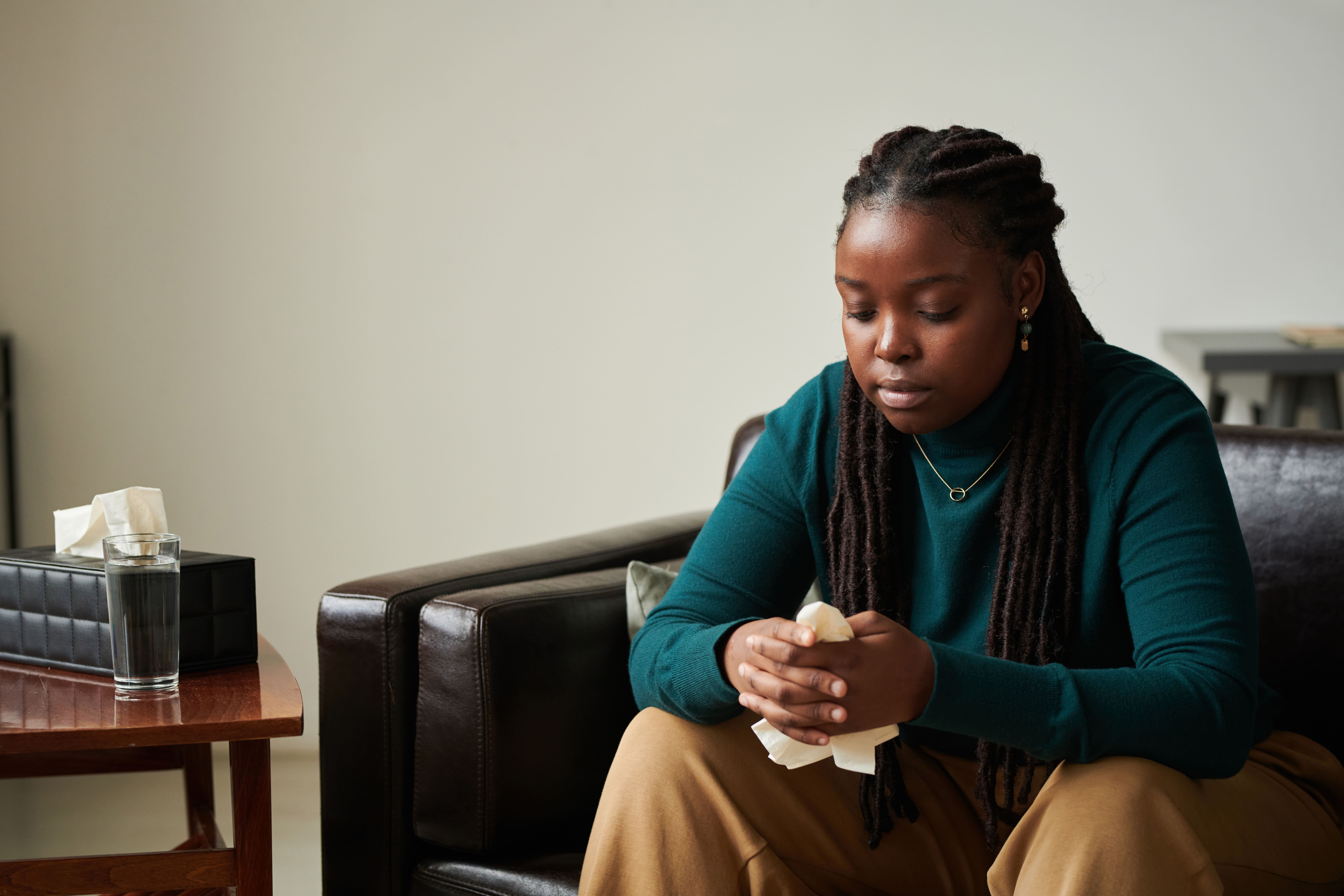Are you feeling “off” lately? Maybe you can’t quite put your finger on it, but you know something’s not right. Perhaps what first seemed like a string of bad days now feels like a battle with no light at the end of the tunnel.
According to the National Institute of Mental Health, clinical depression (also known as major depression or major depressive disorder) affects an estimated 21 million adults across the United States. This makes it one of the most common mental illnesses.
Depression can sneak up on you, but recognizing signs that suggest a need for professional treatment can help you get back to feeling more like your old self.
Depression Is More Than Just Sadness
Sadness is a normal human emotion. You might feel sad after breaking up with your significant other, when you are laid off from your job, or when a loved one passes away.
Depression is different. While sadness typically passes after a few days, depression hangs on for weeks or months. The intensity is also different. Depression affects every part of your life, while sadness just affects your mood.
The final key difference between depression and sadness is the underlying cause. With sadness, you can usually point to why you’re feeling down, but depression often has no clear trigger because genetic factors beyond your control are involved.
Common Emotional Symptoms of Depression
Everyone experiences depression differently, so a professional diagnosis is needed. However, there are some common emotional symptoms of depression that you should be aware of:
- Persistent sadness. When you’re suffering from depression, you may have a deep, lingering sadness that doesn’t seem to lift—even when good things happen.
- Loss of interest. Activities you once enjoyed now seem pointless or unexciting. Hobbies, social events, and even favorite foods might start to lose their appeal.
- Difficulty finding joy. You may struggle to feel pleasure or happiness, even in situations that used to make you grin from ear to ear.
- Mental fog. Concentration becomes challenging, and your mind might feel cloudy or unfocused. You may find it hard to follow conversations or complete tasks at work or school.
- Indecisiveness. Making decisions, even small ones like what to eat for dinner, can feel impossibly difficult.
- Irritability. You might find yourself snapping at loved ones over minor issues. Small annoyances can feel magnified and overwhelming.
- Mood swings. Your emotions might feel unpredictable, swinging from sadness to anger to numbness without apparent reason.
- Emotional numbness. Some people with depression describe feeling emotionally “flat” or unable to feel anything at all, which can be just as upsetting as intense sadness.
- Low self-esteem. Your inner voice might become harsh and unforgiving, constantly criticizing your actions and worth.
- Anxiety. Depression often comes hand in hand with anxiety, causing excessive worry about the future or everyday situations.
- Restlessness. Some people with depression feel a constant sense of unease that makes it hard to relax or sit still.
Common Physical Symptoms of Depression
Depression isn’t just in your head—it can show up in your body as well. Here are common physical signs of depression:
- Sleep disturbances. You might struggle with insomnia, sleeping excessively, or feeling unrefreshed even after a full night’s rest. These changes in sleep patterns can significantly impact your daily functioning and energy levels.
- Fatigue and low energy. You might feel exhausted, even after a full night’s sleep. It can feel like you’re dragging yourself through each day.
- Changes in appetite and weight. Depression can lead to significant weight loss or gain. You might lose interest in eating or find yourself craving your favorite comfort foods.
- Unexplained aches and pains. You may be having headaches, back pain, joint pain, or muscle aches that don’t have a clear physical cause. Your general pain tolerance may also decrease.
- Chronic digestive issues. Depression can lead to nausea, upset stomach, constipation, or diarrhea. These digestive discomforts often don’t respond well to antacids, diet changes, and other standard treatments.
- Sexual dysfunction. Depression can lead to decreased libido or reduced sexual satisfaction. Men may also struggle with erectile dysfunction.
- Weakened immune system. Depression can compromise your immune function, leading to more frequent colds or infections.
Thoughts of Self-Harm or Suicide
In some cases, depression leads to thoughts of self-harm or suicide. If you find yourself struggling with these thoughts, know that they are symptoms of your illness—not a reflection of your true desires or worth.
Intrusive thoughts can be frightening, but they don’t have to control you. Here are some immediate steps you can take:
- Go to your nearest emergency room. Doctors and nurses can provide immediate care and connect you with mental health resources.
- Call the National Suicide Prevention Lifeline at 1-800-273-TALK (8255). Trained counselors are available 24/7 to provide support and resources.
- Text the Crisis Text Line by sending HOME to 741741. This service offers free, 24/7 support from trained crisis counselors.
Many people who have experienced thoughts of self-harm or suicide have gone on to recover and lead fulfilling lives. Your life has value, and there are people who want to help you through this difficult time. Don’t hesitate to reach out.
Take the First Step Towards Healing
At Raleigh Oaks Behavioral Health, we understand how overwhelming depression can feel. But you don’t have to face this battle alone. Our team of experienced mental health treatment professionals is here to listen, support, and guide you towards feeling like yourself again. Contact us for a free, confidential assessment or to learn more about the programs we offer at our behavioral health treatment center in Garner, North Carolina.





